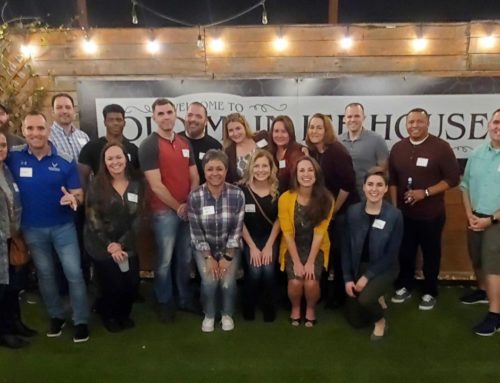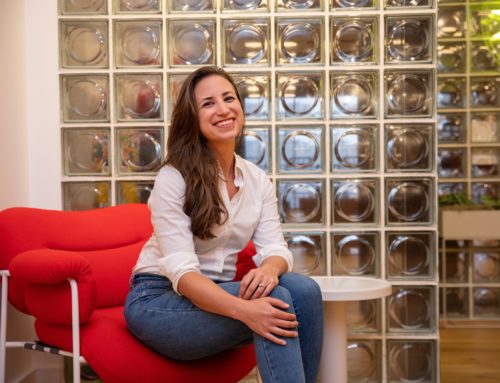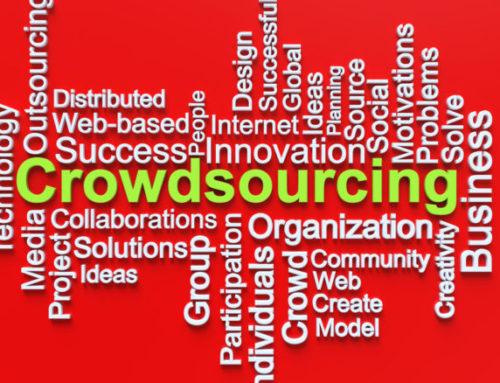How to Use Crowdsourcing to Drive Corporate Sustainability Innovations
Earlier this month at Sustainable Brands’ New Metrics ’16 conference, IdeaScale, Topcoder and SensisChallenges presented on the use of crowdsourcing to drive innovation and de-risk the execution of corporate sustainability initiatives.
Crowdsourcing is a popular mechanism helping organizations formulate winning business ideas and concepts, deliver work faster, and activate the brightest minds, whether they are internal or external to the organization. But until recently, the ways in which crowdsourcing could positively impact social good and enterprise sustainability initiatives hadn’t been crystallized for our audience at Sustainable Brands.
Clinton Bonner, Director of Marketing and Innovation Programs at Topcoder, urged the audience to think of crowdsourcing as an entire innovation-and-sustainability-execution ecosystem that an organization could ‘tap’ to drive real-world results for their programs.
By pairing idea management solutions from IdeaScale with the crowdsourcing campaign management and marketing that SensisChallenges delivers, and executing on the top ideas through Topcoder’s crowdsourcing challenges, any organization in the room could take advantage of what is an ‘innovation in a box’ solution that effectively strings together varied crowdsourcing offerings into a powerful, scalable program. Bonner shared a recent HPE social good program dubbed the Living Progress Challenge as an example of a large-scale innovation program, powered by crowdsourcing.
“If you’re driving a sustainable initiative, your success will depend on your ability to find new ways to scale. Crowdsourcing is the way to achieve this scale.”
So instead of thinking of crowdsourcing only for small things, like a logo or T-shirt design, IdeaScale CEO Rob Hoehn re-introduced the concept of crowdsourcing as an organizational change mechanism: The crowd (whether it’s your customers or your employees) can help you come up with new ideas that will help your company meet its goals in large and small ways; whether it’s launching a global recycling initiative or a new, end-of-life vehicular recycling program.
But this is the New Metrics conference, which means that people weren’t just looking for new programs to add to their Corporate Good initiatives, but new ways to predict and measure the value of these programs. Which is why Hoehn introduced the concept of return on some of these changes, based on the Harvard Business Review golden rule: It states that “firms that outperform their peers tend to allocate their investments in a certain ratio: 70 percent to safe bets in the core, 20 percent to less sure things in adjacent spaces, and 10 percent to high-risk transformational initiatives.” And those investments yield an inverse amount of benefit: 10 percent return on core offerings, 20 percent in adjacent, and 70 percent to disruptive initiatives.
Hoehn encouraged attendees to think about their portfolio of initiatives: Were they looking to improve incrementally or were they trying to generate transformative change at their organizations? The ambitions of their programs were likely going to help them predict what sorts of impact they would make. He encouraged crowdsourcing ideation programs as a solution so that organizations could look for ideas across these different horizons, since the crowd usually has ideas along a number of concurrent fronts.
Finally, Mike Contreras, Director of SensisChallenges, debuted the Crowd Activation ScoreTM (CAS). The CAS algorithm ranks the likely engagement of a particular persona in a crowdsourcing activity. With the likelihood of 40 percent of all US workers being freelancers by 2020, Contreras expressed that it is a competitive advantage for brands to understand who participates in crowdsourcing contests and how to activate them. Using the CAS approach, Contreras highlighted examples where SensisChallenges has increased solar startup commercialization for the Department of Energy 17 times and increased the optionality of chemsuit designs for the US Army.
Your sustainability programs will succeed if you are able to deliver real change with a proven ROI. The panelists offered us an intriguing way to think about and execute on your program’s goals, using the power of the crowd at each step to drive results.
This article was originally published on sustainablebrands here.




